#David Koster
Text
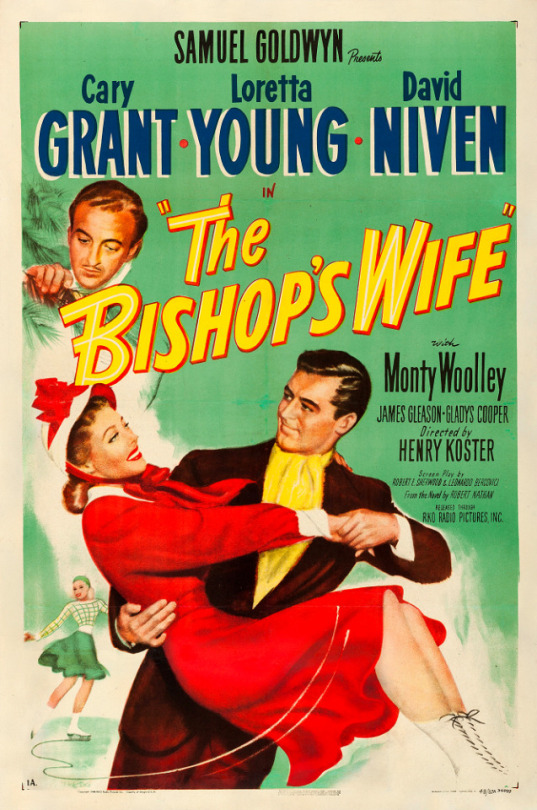
Mod Note: The first poll for this one was accidentally set for one day. My apologies.
#movies#polls#the bishop's wife#cary grant#loretta young#david niven#henry koster#fantasy#ended#result: unheard of
8 notes
·
View notes
Text
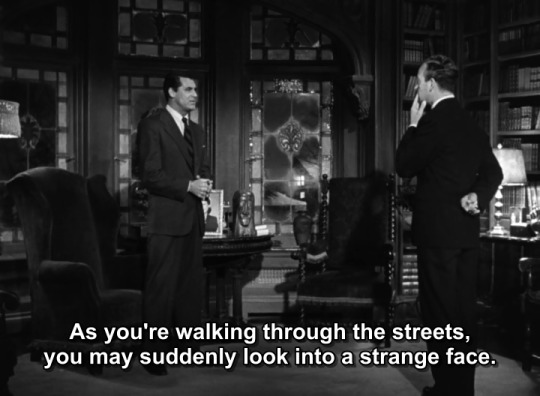
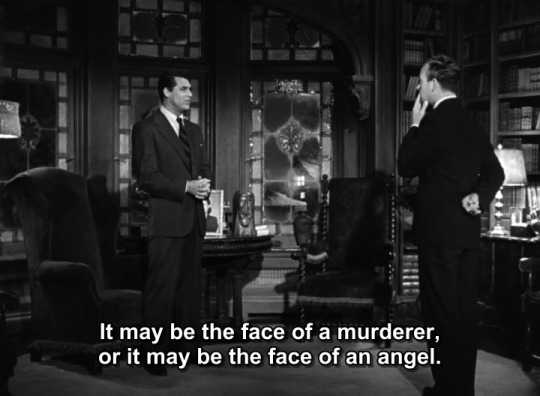
9 notes
·
View notes
Photo
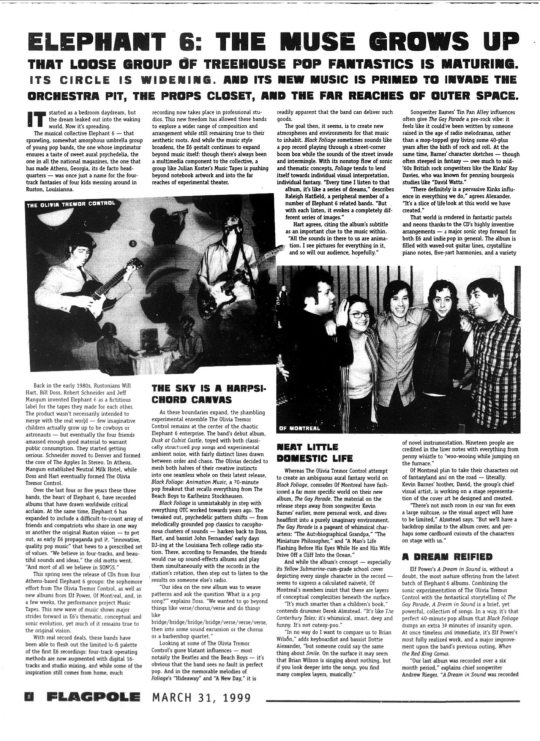
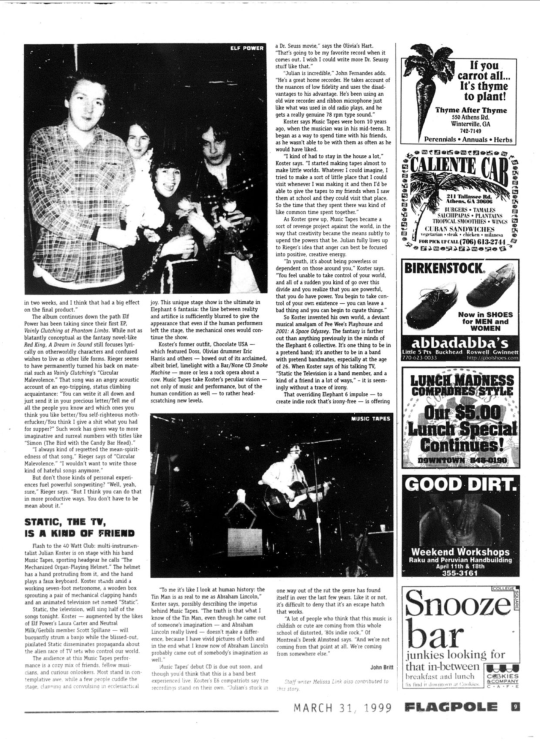
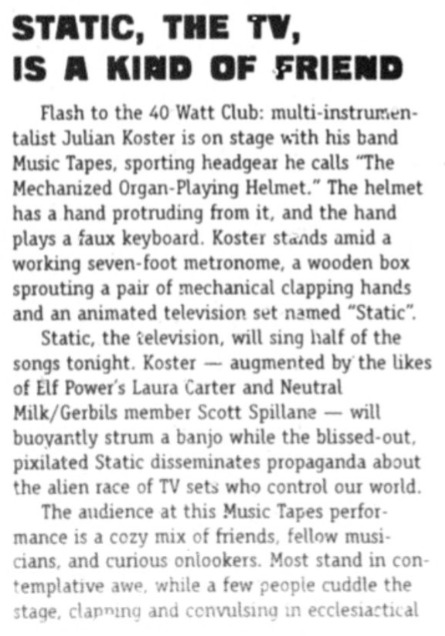
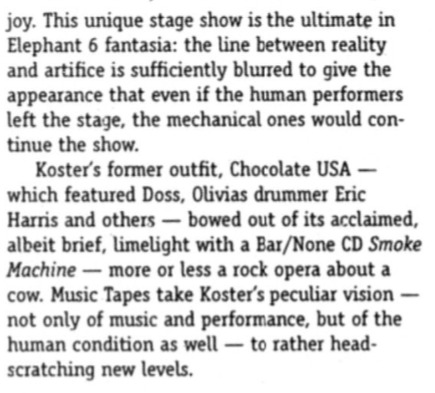
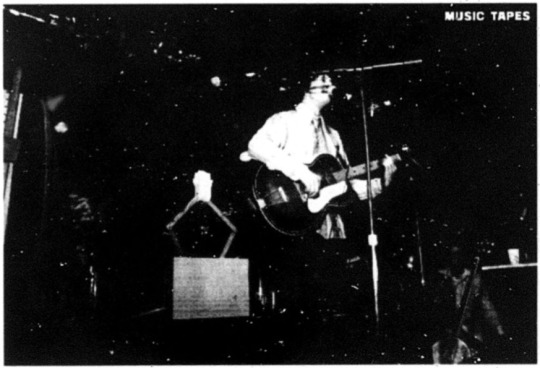
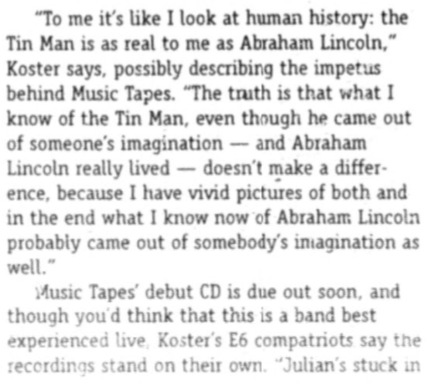
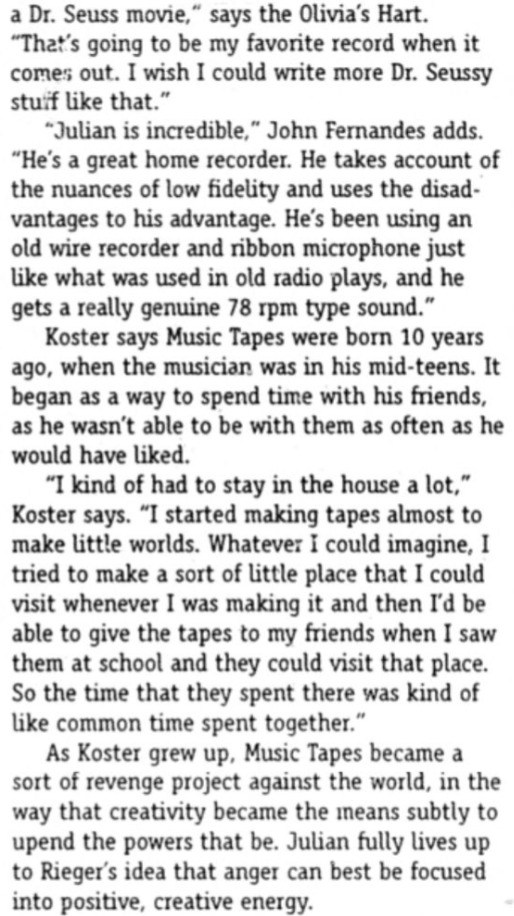
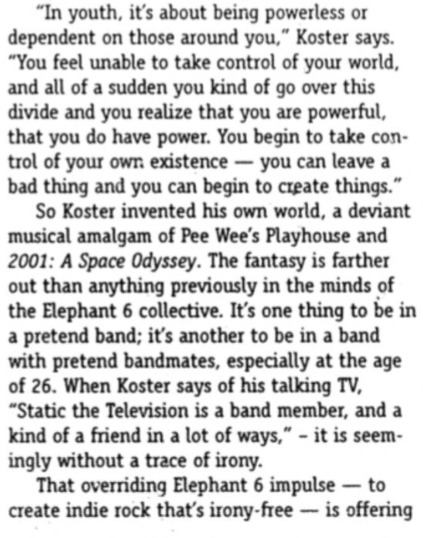
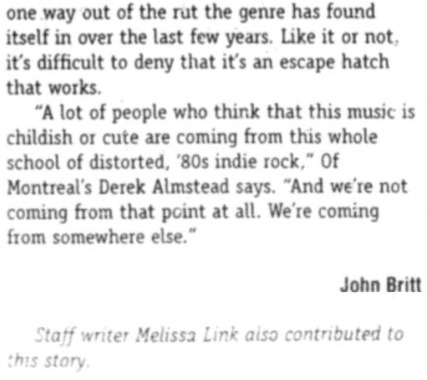
Article about Elephant 6 collective (with a big part regarding the Music Tapes) in Flagpole, 31 March 1999, by John Britt and Melissa Link.
transcript:
ELEPHANT 6: THE MUSE GROWS UP
THAT LOOSE GROUP OF TREEHOUSE POP FANTASTICS IS MATURING. ITS CIRCLE IS WIDENING. AND ITS NEW MUSIC IS PRIMED TO INVADE THE ORCHESTRA PIT, THE PROPS CLOSET, AND THE FAR REACHES GF OUTER SPACE.
It started as a bedroom daydream, but the dream leaked out into the waking world. Now it’s spreading.
The musical collective Elephant 6 — that sprawling, somewhat amorphous umbrella group of young pop bands, the one whose imprimatur ensures a taste of sweet aural psychedelia, the one in all the national magazines, the one that has made Athens, Georgia, its de facto headquarters — was once just a name for the four-track fantasies of four kids messing around in Ruston, Louisianna.
Back in the early 1980s, Rustonians Will Hart, Bill Doss, Robert Schneider and Jeff Mangum invented Elephant 6 as a fictitious label for the tapes they made for each other. The product wasn't necessarily intended to merge with the real wor|d — few imaginative children actually grow up to be cowboys or astronauts — but eventually the four friends amassed enough good material to warrant public consumption. They started getting serious. Schneider moved to Denver and formed the core of The Apples In Stereo. In Athens, Mangum established Neutral Milk Hotel, while Doss and Hart eventually formed The Olivia
Tremor Control.
Over the last four or five years these three bands, the heart of Elephant 6, have recorded albums that have drawn worldwide critical acclaim. At the same time, Elephant 6 has expanded to include a difficult-to-count array of friends and compatriots who share in one way or another the original Ruston vision — to put out, as early E6 propaganda put it, “innovative, quality pop music” that hews to a prescribed set of values. “We believe in four-tracks, and beautiful sounds and ideas,” the old motto went. “And most of all we believe in SONGS.”
This spring sees the release of CDs from four Athens-based Elephant 6 groups: the sophomore effort from The Olivia Tremor Control, as well as new albums from Elf Power, Of Montreal, and, in a few weeks, the performance project Music Tapes. This new wave of music shows major strides forward in E6’s thematic, conceptual and sonic evolution, yet much of it remains true to the original vision.
With real record deals, these bands have been able to flesh out the limited lo-fi palette of the first E6 recordings: four-track operating methods are now augmented with digital 16-tracks and studio mixing, and while some of the inspiration still comes from home, much recording now takes place in professional studios. This new freedom has allowed these bands
to explore a wider range of composition and arrangement while still remaining true to their aesthetic roots. And while the music style broadens, the E6 gestalt continues to expand beyond music itself: though there's always been a multimedia component to the collective, a group like Julian Koster’s Music Tapes is pushing beyond notebook artwork and into the far teaches of experimental theater.
THE SKY IS A HARPSICHORD CARVAS
As these boundaries expand, the shambling experimental ensemble The Olivia Tremor Control remains at the center of the chaotic Elephant 6 enterprise. The band’s debut album, Dusk at Cubist Castle, toyed with both classically structured pop songs and experimental ambient noise, with fairly distinct lines drawn between order and chaos. The Olivias decided to mesh both halves of their creative instincts into one seamless whole on their latest release, Black Foliage: Animation Music, a 70-minute pop freakout that recalls everything from The
Beach Boys to Karlheinz Stockhausen.
Black Foliage is unmistakably in step with everything OTC worked towards years ago. The tweaked out, psychedelic pattern shifts — from melodically grounded pop classics to cacophonous clusters of sounds — harken back to Doss,
Hart, and bassist John Fernandes’ early days DJ-ing at the Louisiana Tech college radio station. There, according to Fernandes, the friends would cue up sound-effects albums and play them simultaneously with the records in the station's rotation, then step out to listen to the results on someone else's radio.
“Our idea on the new album was to weave patterns and ask the question ‘What is a pop song?” explains Doss. “We wanted to go beyond things like verse/chorus/verse and do things like bridge/bridge/bridge/bridge/verse/verse/verse, then into some sound excursion or the chorus or a barbershop quartet.”
Looking at some of The Olivia Tremor Control's more blatant influences — most notably the Beatles and the Beach Boys — it’s obvious that the band sees no fault in perfect pop. And in the memorable melodies of Foliage’s “Hideaway” and “A New Day,” it is readily apparent that the band can deliver such goods.
The goal then, it seems, is to create new atmospheres and environments for that music to inhabit. Black Foliage sometimes sounds like a pop record playing through a street-comer boom box while the sounds of the street invade and intermingle. With its nonstop flow of sonic and thematic concepts, Foliage tends to lend itself towards individual visual interpretation, individual fantasy. “Every time I listen to that album, it’s like a series of dreams,” describes Raleigh Hatfield, a peripheral member of a number of Elephant 6 related bands. “But with each listen, it evokes a completely different series of images.”
Hart agrees, citing the album’s subtitle as an important clue to the music within.
“All the sounds in there to us are animation. I see pictures for everything in it, and so will our audience, hopefully.”
NEAT LITTLE DOMESTIC LIFE
Whereas The Olivia Tremor Control attempt to create an ambiguous aural fantasy world on Black Foliage, comrades Of Montreal have fashioned a far more specific world on their new album, The Gay Parade. The material on the telease steps away from songwriter Kevin Bames’ earlier, more personal work, and dives headfirst into a purely imaginary environment. The Gay Parade is a pageant of whimsical characters: “The Autobiographical Grandpa,” “The Miniature Philosopher,” and “A Man’s Life Flashing Before His Eyes While He and His Wife Drive Off a Cliff Into the Ocean.”
And while the album‘s concept — especially its Yellow Submarine-cum-grade school cover depicting every single character in the record — seems to express a calculated naiveté, Of Montreal's members insist that there are layers of conceptual complexities beneath the surface.
“It’s much smarter than a children’s book,” contends drummer Derek Almstead. “It's like The Canterbury Tales; it's whimsical, smart, deep and funny. It’s not cutesy-poo.”
“In no way do I want to compare us to Brian Wilson,” adds keyboardist and bassist Dottie Alexander, “but someone could say the same thing about Smile. On the surface it may seem that Brian Wilson is singing about nothing, but if you look deeper into the songs. you find many complex layers, musically.”
Songwriter Barnes’ Tin Pan Alley influences often give The Gay Parade a pre-rock vibe: it feels like it could've been written by someone raised in the age of radio melodramas, rather than a mop-topped guy living some 40-plus years after the birth of rock and roll. At the same time, Barnes’ character sketches — though
often steeped in fantasy — owe much to mid-“60s British rock songwriters like the Kinks’ Ray Davies, who was known for penning bourgeois studies like “David Watts.”
“There definitely is a pervasive Kinks influence in everything we do,” agrees Alexander. “It's a slice of life look at this world we have created.”
That world is rendered in fantastic pastels and neons thanks to the CD's highly inventive arrangements — a major sonic step forward for both £6 and indie pop in general. The album is filled with waved-out guitar lines, crystalline piano notes, five-part harmonies, and a variety of novel instrumentation. Nineteen people are credited in the liner notes with everything from penny whistle to “woo-wooing while jumping on the furnace.”
Of Montreal plan to take their characters out of fantasyland and on the road — literally. Kevin Barnes’ brother, David, the group's chief visual artist, is working on a stage representation of the cover art he designed and created.
“There's not much room in our van for even a large suitcase, so the visual aspect will have to be limited,” Almstead says. “But we'll have a backdrop similar to the album cover, and perhaps some cardboard cutouts of the characters on stage with us.”
A DREAM REIFIED
Elf Power's A Dream in Sound is, without a doubt, the most mature offering from the latest batch of Elephant 6 albums. Combining the sonic experimentation of The Olivia Tremor Control with the fantastical storytelling of The Gay Parade, A Dream in Sound is a brief, yet powerful, collection of songs. In a way, it’s that perfect 40-minute pop album that Black Foliage dumps an extra 30 minutes of insanity upon. At once timeless and immediate, it’s Elf Power's most fully realized work, and a major improvement upon the band’s previous outing, When the Red King Comes.
“Our last album was recorded over a six month period,” explains chief songwriter Andrew Rieger. “A Dream in Sound was recorded in two weeks, and I think that had a big effect on the final product.”
The album continues down the path Elf Power has been taking since their first EP, Vainly Clutching at Phantom Limbs. While not as blatantly conceptual as the fantasy novel-like Red King, A Dream in Sound still focuses lyrically on otherworldly characters and confused wishes to live as other life forms. Rieger seems to have permanently turned his back on material such as Vainly Clutching's “Circular Malevolence.” That song was an angry acoustic account of an ego-tripping, status climbing acquaintance: “You can write it all down and just send it in your precious letter/Tell me of all the people you know and which ones you think you like better/You self-righteous motherfucker/You think I give a shit what you had for supper?” Such work has given way to more imaginative and surreal numbers with titles like “Simon (The Bird with the Candy Bar Head).”
“I always kind of regretted the mean-spiritedness of that song,” Rieger says of “Circular Malevolence.” “I wouldn't want to write those kind of hateful songs anymore.”
But don’t those kinds of personal experiences fuel powerful songwriting? “Well, yeah, sure,” Rieger says. “But I think you can do that in more productive ways. You don’t have to be mean about it.”
STATIC, THE TV, IS A KIND OF FRIEND
Flash to the 40 Watt Club: multi-instrumentalist Julian Koster is on stage with his band Music Tapes, sporting headgear he calls “The Mechanized Organ-Playing Helmet.” The helmet has a hand protruding from it, and the hand plays a faux keyboard. Koster stands amid a working seven-foot metronome, a wooden box sprouting a pair of mechanical clapping hands and an animated television set named “Static”.
Static, the television, will sing half of the songs tonight. Koster — augmented by the likes of Elf Power's Laura Carter and Neutral Milk/Gerbils member Scott Spillane — will buoyantly strum a banjo while the blissed-out, pixilated Static disseminates propaganda about the alien race of TV sets who control our world.
The audience at this Music Tapes performance is a cozy mix of friends, fellow musicians, and curious onlookers. Most stand in contemplative awe, while a few people cuddle the stage, clapping and convulsing ecclesiastical joy. This unique stage show is the ultimate in Elephant 6 fantasia: the line between reality and artifice is sufficiently blurred to give the appearance that even if the human performers left the stage, the mechanical ones would continue the show.
Koster’s former outfit, Chocolate USA — which featured Doss, Olivias drummer Eric Harris and others — bowed out of its acclaimed, albeit brief, limelight with a Bar/None CD Smoke Machine — more or less a rock opera about a cow. Music Tapes take Koster’s peculiar vision — not only of music and performance, but of the human condition as well — to rather head-scratching new levels.
“To me it’s like I look at human history: the Tin Man is as real to me as Abraham Lincoln,” Koster says, possibly describing the impetus behind Music Tapes. “The truth is that what I know of the Tin Man, even though he came out of someone's imagination — and Abraham Lincoln really lived — doesn’t make a difference, because I have vivid pictures of both and in the end what I know now of Abraham Lincoln probably came out of somebody's imagination as well.”
Music Tapes’ debut CD is due out soon, and though you'd think that this is a band best experienced live. Koster’s E6 compatriots say the cordings stand on their own. “Julian's stuck in a Dr. Seuss movie,” says the Olivia's Hart.
“That's going to be my favorite record when it comes out. I wish I could write more Dr. Seussy stuff like that.”
“Julian is incredible,” John Fernandes adds. “He's a great home recorder. He takes account of the nuances of low fidelity and uses the disadvantages to his advantage. He's been using an old wire recorder and ribbon microphone just like what was used in old radio plays, and he gets a really genuine 78 rpm type sound.”
Koster says Music Tapes were born 10 years ago, when the musician was in his mid-teens. It began as a way to spend time with his friends, as he wasn't able to be with them as often as he would have liked.
“I kind of had to stay in the house a lot,” Koster says. “I started making tapes almost to make little worlds. Whatever I could imagine, I tried to make a sort of little place that I could visit whenever I was making it and then I'd be able to give the tapes to my friends when I saw them at school and they could visit that place. So the time that they spent there was kind of like common time spent together.”
As Koster grew up, Music Tapes became a sort of revenge project against the world, in the way that creativity became the means subtly to upend the powers that be. Julian fully lives up to Rieger's idea that anger can best be focused into positive, creative energy.
“In youth, it’s about being powerless or dependent on those around you,” Koster says. “You feel unable to take control of your world, and all of a sudden you kind of go over this divide and you realize that you are powerful, that you do have power. You begin to take control of your own existence — you can leave a
bad thing and you can begin to create things.”
So Koster invented his own world, a deviant musical amalgam of Pee Wee's Playhouse and 2001: A Space Odyssey. The fantasy is farther out than anything previously in the minds of the Elephant 6 collective. It’s one thing to be in a pretend band; it’s another to be in a band with pretend bandmates, especially at the age of 26. When Koster says of his talking TV, “Static the Television is a band member, and a kind of a friend in a lot of ways,” - it is seemingly without a trace of irony.
That overriding Elephant 6 impulse — to create indie rock that’s irony-free — is offering one way out of the rut the genre has found itself in over the last few years. Like it or not, it’s difficult to deny that it’s an escape hatch that works.
“A lot of people who think that this music is childish or cute are coming from this whole school of distorted, ‘80s indie rock,” Of Montreal's Derek Almstead says. “And we're not coming from that point at all. We're coming from somewhere else.”
John Britt
Staff writer Melissa Link also contributed to story
#articles#1999#Elephant 6#the Music Tapes#Of Montreal#Olivia Tremor Control#Elf Power#Julian Koster#John Fernandes#Bill Doss#Derek Almstead#Dottie Alexander#Kevin Barnes#David Barnes#Andrew Rieger
9 notes
·
View notes
Text

David Niven-Eva Gabor "Un mayordomo aristócrata" (My man godfrey) 1957, de Henry Koster.
14 notes
·
View notes
Text
Season 1, Episode 2 (R): Secondly! - The Cricket
Narrator: As night begins to fall on Paris, backstage at the broadcast ballroom, busy preparations for this evening’s broadcast of The Orbiting Human Circus of the Air begin.
[Doors opening, footsteps, elephant trumpets]
[Music in the background]
But, before we listen, there’s one thing I think you ought to know. You’ll remember, last week, seeking forgiveness, the janitor snuck backstage to clean host John Cameron’s dressing room as the last song of the evening played. And that music – and this is what I really wanted to tell you – was performed by the Orbiting Human Circus Orkestral, a rare African bird that can mimic all 47 instruments of the orchestra at once.
The Orkestral is something of a Parisian Bigfoot, believed only to land where orchestras are rehearsing. Many people claim to have seen them, but one has never been filmed or recorded. Yet, there one was, perched in its cage on the stage in full view of the entire studio audience – beautifully mimicking a waltz! With no visible strings or wires! Even the stagehands don’t know how it’s done. And it’s that way with all the acts.
With that thought, we take you back to last week [Cleaning noises] in host John Cameron’s dressing room, where the janitor cleans with greater and greater enthusiasm until—look out!
[Muffled explosion]
In his exuberance, the janitor accidentally knocks a small crate, marked, ‘For Mister Cameron’s Eyes Only, exclamation point’ off the table. Out of it spills several tiny tomes of sheet music and some bird seed.
Suddenly, the door opens! [Door and floor creaking] And in sneaks stagehand Jacques, guiltily starting to light a cigarette!
Jacques: Kid, I was told to throw you out on your ass.
Julian: I won’t tell Laeticia you were smoking!
Jacques: You wouldn’t?
Julian: I won’t if you let me finish cleaning!
Jacques: Cleaning? [Scoffs] This place is a wreck, look at that on the floor. Oh—whoa, look at that crate. Is that what the bird came in?
Julian: …Yeah.
Jacques: Hey, lemme see that. Whoa, look at this. He’s gotta know how this bird works, I was—I was thinking it’s gotta be a robot.
Julian: It’s not a robot!
Jacques: What’s this white stuff? [Groans] It’s not a robot!
Julian: It’s not a robot.
Jacques: Ugh.
Julian: Here’s a paper towel.
Jacques: Alright, so what do I got here?
Narrator: Suddenly, a commotion out in the hall!
Laeticia: Allons, allons, attention, get out of ze way, zis machine, it is ‘eavy!
Jacques: Ah, shit, I’m supposed to be out there helpin’ her! If she catches me in here, and I’m talkin’ to you?
Julian: Please, you’ve gotta let me finish cleaning.
Jacques: Okay, but you get me in trouble, I’m gonna break your legs.
Narrator: Meanwhile, at home, the listeners sat back and listened to… this.
[Christy Gressman intro message]
[Bell tolling]
John: Eldrid, the tap dancing mouse!
[Mouse skittering and squeaking]
[Opening music]
John Cameron: Broadcasting from the top of the Eiffel Tower, the Orbiting Human Circus of the Air! To start us off, as part of our continuing series on the formative influence of Judaism on rock and roll, we give you this 1921 recording by Cantor Moishe Lebowitz, clearly an influence on the song ‘Surrender’ by popular singing group, Cheap Trick, decades later!
[Music and ballad-like singing]
Narrator: Meanwhile, as the broadcast continues, high in the shadowy outer walls of the Eiffel Tower, far from the microphones hearing, the sound of a single mop [sound of a mop hitting the floor] and the lonely silhouetted figure holding it.
[Julian sighs]
Narrator: This of Julian, janitor of the Eiffel Tower, banned from the broadcast ballroom for his on-air interruptions. Follow him as he mops the tower’s outer walls and climbs higher, dangerously high, without scaling gear, ropes, or scaffolding to hold him!
Julian: I don’t need that stuff. I’ve been climbing my whole life.
[Voice yelling ‘Julian’ from far away]
Julian: I gotta go.
Narrator: With one free hand, he scales the tower, spilling soapy water from the bucket he holds and nearly dropping the mop. [Julian breathing heavily] Still he goes higher, and higher, and higher, like a small animal climbing a tall tree to escape its pursuers! Much too high! My god, what’s he doing?! Has he no fear of heights at all?
Julian: Heights are the last thing I’m afraid of. Up high, you’re safe.
[Bucket clanging]
Narrator: But still, he climbs higher, and higher, and the higher he climbs, the calmer he becomes.
Julian: Everything looks so beautiful from up here. There’s not a thing that can touch you.
Narrator: The janitor leans back on one of the tower’s upmost girders and gazes off, as if lost in memory.
Julian: When I was a kid, my stepfather used to be afraid of heights. I used to climb this water tower, we had this water tower—it was the tallest structure in our town and I’d, like, climb up it, and I’d stay up there for hours. But the first time I came to Paris, I never saw anything like this.
Narrator: Yes, Eiffel really knew what he was doing.
Julian: I mean, it was the tallest thing I’d ever seen in my life. I would—all the buildings were, I mean, I was ten. I ran away.
Narrator: To Paris? At ten?
Julian: Well, I knew I had this great grandpa, and he was a stage hypnotist… So I snuck on a train. [Chuckles] I went to the train station, I went into the turnstile, I—I went down and nobody saw me, and I got onto one of the trains when no one was looking. And I got under the bench seats, and I was down there, um, by everyone’s feet, I could see everybody’s shoes, and…
The train started moving, like – nobody caught me! And, uh, I didn’t even know – I hadn’t thought about where I was going, or how I was gonna eat or survive, and—and the next thing I knew, we got in Paris. And when we got in Paris, there were posters for my great grandfather’s show – everywhere!
[Chuckles] I—so I—I found the theatre where he was playing, and I snuck backstage.
Narrator: Well, what happened?
Julian: He took me home with him. And he lived in these wonderful apartments. There was red velvet everywhere, and, and, uh… there was all these famous people, like actors and actresses. Like, people I knew, I mean from posters, and—and there were always parties.
And my great grandpa was just handsome and elegant and—and, oh my god, and I remember, I remember some nights he even forgot to feed me. Like, he didn’t know how to take care of kids, but I didn’t care. I mean, he forgot that I had to go to school, he never thought about that – which was amazing. Um…
I just wanted to be near him.
Narrator: Sounds like he was very special.
Julian: There was this one time… I was in his, I was in his office. And I was hiding, he didn’t know I was watching him. And he was sitting at his desk and he was writing, and he started—he had this cigar in his mouth, and he started blowing these, uh, smoke rings. But he wasn’t looking at them, and they started getting bigger, and bigger, and bigger, and he still wasn’t looking.
And they slowly, slowly started getting smaller, and smaller, and smaller, and then, without looking, he just lifted up his left hand, and he extended his finger, and he stuck it right through the center of the ring. And he put both of his hands in front of his face and he started puffing, and when he took his hands away, there was a perfect smoke polar bear… just floating! In the middle of the room!
And there was even a polar bear-shaped shadow on the carpet! And it drifted up, and up, until it reached the ceiling.
I wanted to know how to do that! I want—I just wanted to stay with him, I wanted him to show me how to be a show person… I wanted to live like those people.
Narrator: Did you get to?
Julian: [Sighs, laughs softly] No.
Narrator: The janitor takes his bucket, looks down at the glowing lights of the city far below, and begins to mop.
[Wind whipping]
Meanwhile, below, in Paris, people gather ‘round their radios. [Music starts] You see, there’s a rumor that something unusual, something quite unprecedented, is going to happen on The Orbiting Human Circus. It’s going to happen during the feature presentation! You know, the strange story that ends each episode, which all Paris waits for?
What’s going to happen? Well, all Paris is going to have to wait to find out. But I can show you…
We zoom in on a small, enclosed space that looks a lot like the janitor’s pocket. A dark, womb-like space, where a small figure lies curled in a fetal position…
Well, I don’t know if they have fetal positions. You see, it’s an insect. And what does an insect have to do with the feature presentation? Well, it must be something, because backstage at the broadcast ballroom, the large tape machine which usually plays the feature presentation is still tucked away. And stagehand Jacques pays little attention to it!
Jacques: Hey, hey, somebody help me lift these pies onto the stage for the next act!
Narrator: Meanwhile, above, at the tip of the Eiffel Tower, the janitor leans perilously off the side, mysteriously pauses mopping, and puts his ear to the metal girders to listen.
Julian: If you put your ear up against the metal, you can hear things. The tower picks up radio signals from all over the world depending on which girder. Here, listen.
Narrator: The janitor presses his ear against the girder.
[Slow music]
Julian: Or listen over here!
[Hawaiian-style music]
Julian: And if you put your ear up to this girder here, listen to what you can hear.
John: That was Yurmac, the pie-eating Cossack! Yurmac, ladies and gentlemen!
Julian: You know how I live in the janitor’s closet… there’s no electricity, so I can’t have a radio. I come up here for hours and listen…
John: Yurmac!
And now, ladies and gentlemen, it’s nearly time for our feature presentation!
Julian: I gotta go!
Narrator: Where are you going?
Julian: Down to the show, it’s almost time!
Narrator: And so, the janitor begins a frenzied climb down to the ballroom!
But they won’t let you in.
Julian: Look, look at this. I got it here in my pocket.
[Cricket noises]
Narrator: It’s… a cricket.
[Voice yelling ‘Julian’ from far below]
Julian: Oh, come on, we gotta go! I’ll explain about the cricket. Late at night, after everybody goes, I’m allowed to clean the acts’ cages.
Narrator: An important job!
Julian: I was just finishing up, and I went to the—the new orchestra bird’s cage, and it wasn’t in there!
Narrator: You mean the Orkestral, the rare African bird that can mimic all 47 instruments in the orchestra at once, the Orbiting Human Circus’s one-bird band?
Julian: I looked everywhere for it, and it wasn’t anywhere! It was all my fault! Sometimes the lock doesn’t lock. I was scared it ran away! Everyone was gonna know I did it.
But then I heard something in Mister Cameron’s office!
Narrator: You mean John Cameron, host of the Orbiting Human Circus, whose dressing room you’ve invaded on multiple occasions? You didn’t.
Julian: I had to! It was dark, and I turned on the light, and there it was! The Orkestral was standing right over this cricket like it was gonna eat it, but it didn’t. It was… listening.
Narrator: Listening?
Julian: I swear to god. It looked like the cricket was telling the Orkestral a story!
Oh, through here. It’s time! [Clapping] Listen, he’s talking about me on the air!
John: Last week, ladies and gentlemen, we demonstrated the Cricket’s Song Trans-Migrator, a machine that allows us to hear the cricket’s song as the cricket hears it. After the show, I discovered Julian toying with that machine, violating a great many rules.
But for once, we’re glad he did! The machine caught a cricket backstage in mid-anecdote. And for the first time, a cricket story was translated into the human tongue! I realized we simply had to share it with you! We discovered not only that crickets are the greatest storytellers in the world, but why they are.
When a cricket is caught by a bird, he is always given a chance to tell a story. And if it’s a good one, that bird will spare that cricket’s life. So, let’s bring out the cricket!
[Clapping]
Our janitor, ladies and gentlemen. [Quieter] Put him in my hand, Julian. [Cricket chirping] Roll out the machine, Jacques. Little cricket, up on the platform you go. [Cricket chirping louder]
And now, ladies and gentlemen, we make radio history – a cricket’s own story, our feature presentation, “The Extraordinary Tale of Ladislas Koskovsky”.
[Technological noises]
[Gurgling, followed by laughter]
[Clearing throat]
Cricket: Hello, ladies and gentlemen! [Clapping] It is we, crickets, who see what no one else does. But there is no mystery more beloved amongst us than that of Ladislas Koskovsky.
Ladislas Koskovsky was a promising young clockmaker who believed, due to certain incontrovertible laws of physics, clocks would run more accurately counter-clockwise. And he was correct, his clocks were too accurate, in fact! Who wants to own a clock that runs a different time than all others? Nobody!
He cannot afford to eat, his whole life is his shop – and his shop is failing. He had to find some way to make people want his clocks. But he finds it impossible to work.
Through the ceiling in his workshop come piercing the voices of the two children who live upstairs, as if in the room with him. The children constantly beg for dolls he knows the parents cannot afford. Christmas will come, bring disappointment. [Babbles]
Ladislas finds himself gathering small bits of fabric from his wardrobe, materials from his workshop, and beginning to fashion the children two dolls – one for the boy and one for the girl. They will be good dolls; he will ask only for peace and quiet in return.
When the family opened the door to reveal Ladislas holding presents, they are stunned. Ladislas had never been the least bit friendly to them, and yet here he is.
“Merry Christmas,” is all he says, “ask them to keep quiet for me.” And avoiding all eye contact, he dumps the packages in their hands and runs away.
The battle of curiosity of even the parents cannot be contained, the packages unwrapped immediately. How much the children loved their dolls cannot be measured in words.
Then, a miracle happens.
Customers begin coming into Ladislas’ shop!
Narrator: As the cricket’s voice rings out, the cast and crew listen, and chief stagehand Laeticia is so touched that later that night, she tells the story to her downstairs neighbor.
Laeticia: They are, like, coming into his shop! All of a sudden, where are zey coming from, you know? Is not like the people who used to come, no zese people are, zey are wearing stylish clothes and, more importantly, zey begin buying his clock!
And, er, they smile at him when zey come in and zey are like, “Oh, Ladislas, you know, you are, you are a genius!” and all this, oh. And he is like, [gasp]!
Some of zem, zey are very beautiful women, you know, and say, “Si, Ladislas,” you know, he is like, whoa. [Laughs] You know what it is like when you have not been with someone for a long time and zen zis beautiful person come in and is, like, looking at you, you know, he is like, “Oh my,” like he’s, uh, his face is on fire, you know.
But he’s like, “I’m going to buy myself a new suit, and I am going to buy myself, like, a new hat, and is gonna make a difference and I’m gonna go, uh, talk to zose people! I’m going to go to ze party!” Because zis one girl, she had invited him to zis party. So he’s gonna go!
He arrive at ze party, so he come to Marie’s door. He knock on the door, and, er, ze butler open the door, and, you know, “I am Ladislas Koskovsky, I have come—come to ze party.” And he look inside, and zere is Marie, and she is like, [gasp]! You know, like, uh, kind of a little bit, like, shocked or something?
But zen, “Oh,” you know she is very happy, she’s inviting him in, and he walk into zis amazing party with ze champagne, you know, and ze trays, and everyzing is, like, sparkly zere, like, it is all so beautiful. You know, ze people but also ze ways zey laugh, it is like Christ alors or something.
So zis blush on his cheeks is just deeper and deeper, you know, like a beet or somezing. But it’s okay, he’s like, going from room to room, you know, with Marie, and she is like, “Zis is zis room and zis room and ze terrace,” and, uh, you know, ze terrace, it smell like, uh, like a whole garden is out zere, blooming, you know, in ze midnight with the stars and the light, it is all so fragrant, you know? You come back inside and every room he go into with Marie, zere is a clock of his.
Ze people are all smiling at him and he see his clock is in every room, like, uh, “I did not know zis was my home, I did not know zis was always where I was going.” And then, suddenly, zere is somezing in him, it is, like, coming up, like tingling. What is zis feeling, it is like, rising, and rising, and rising, rising, what is zis? It is in his throat and out of his mouth and…
It’s a sob?
Zere is somezing in him, like, coming up, like a… like a boulder, gaining speed, you know, rushing toward him, and he feel it coming up through his body and just as he come into ze big grand ballroom and he see his clock on ze other side of ze wall, it is like, “[Gasp]! Zey are laughing at me! Zey don’t like ze clock, zey think it is a joke! Zey brought me here to make fun of me.”
And he cannot control the pain and ze rage, it is like, uh, pours out over him and through him and it is rushing over, like, the whole ballroom, like, uh, like ze snow just *pow*, just, you know, like he is, like a doorway through which winter comes rushing.
And, uh, he is crying on ze carpet and making a scene, and just, like, cannot move, like, uh, frozen to ze floor. They ask the butler, ze butler, you know, he comes, everyone’s a little bit nervous, you know, because there is zis, uh, crying clockmaker on ze floor. And zey pick him up, and, uh, zey kick him out, because, you know, zey are going to clean up zis mess on ze carpet now.
Narrator: And stagehand Jacques tells it to his elderly aunt!
Jacques: So, listen, that night, he smashes all the clocks. He smashes his own prized possession. He takes, you know, his little squeaker clock? The one that goes off in the morning, and he fuckin’ hurls it across the room. Smash! He takes his grandfather clock, he pushes it down the stairs. It tumbles, it tumbles, it tumbles, and crack at the bottom, alright? He’s just chucking ‘em everywhere, it’s hittin’ the ceiling, you know. One of ‘em, you know, crashes out the fuckin’ window. It’s unbelievable.
Like, like, this guy is so pissed off. Everybody’s wakin’ up in town, you know. The neighbors, the people upstairs. He hurls one, it smacks against his fuckin’ plumbing, you hear water comin’ out. It’s crazy, this guy’s goin’ crazy.
So then, they hear, like, a shuddering of the doors. Here’s the thing: after all that, he never came out.
Narrator: And, even later that night, janitor Julian tells it to Coco, elderly night watchman at the Eiffel Tower, who counts on the janitor’s nightly telling of the radio show to help pass his lonely watchman’s hours.
Julian: They thought he was dead.
Coco: Okay. [Laughs]
Julian: And after a few weeks, kids started, you know, saying that it was haunted, and they’d dare each other to go up, and tap on the window.
Coco: Oh, yes.
Julian: Or to try and get as close to the window as they could, and of course they’d all run off, and then, some of them started to hear these sounds.
Coco: Uh-huh!
Julian: Um, late at night, there’d be these crazy sounds, like knocking, uh, banging. Really scary sounds.
And it would terrify the people living upstairs, and all the noise would happen all night and then in daylight, it would stop and it would get quiet again.
And this went on for weeks!
Coco: Wow.
Julian: And then one morning, the sun was rising and the shades on the shop window just went up!
There was a doll shop!
Coco: No!
Julian: Nobody could believe their eyes! And the window displays were amazing, and the dolls? The dolls had this thing that just makes you feel safe and happy and warm. Kids loved them, it became a sensation. I mean, kids just wanted to even be in the shop, and they’d press their faces up against the window and their breath would fog it up. There were people lining up for blocks!
Coco: No!
Julian: And Ladislas was there, right in the middle of it. He went out and he found all the people, um, that were at that party, and he gave them dolls for free, just as gifts for their kids, and—and, well he found the people that used to come into his shop just to keep warm that he used to kick out and yell, and he gave them dolls for their kids and their friends’ kids.
It got to where Ladislas was, like, the most famous person in Bucharest.
Narrator: But, Ladislas’ story does not end there! In fact, it doesn’t end at all. But I’ll get to that in a moment.
As we all heard, live on the air…
Cricket: One morning, Ladislas Koskovsky disappeared.
Narrator: Both he and his doll shop, gone! Without a trace! All Romania wanted to know – what happened to Ladislas Koskovsky?
But, it is not what had happened to Ladislas Koskovsky – it is what he had done. On every doll he had created, there was hidden a tiny catch. This catch was protected by a thin layer of vaunge, which, lovingly handled, would wear off in no less than a year – the exact same amount of time it would take for a child to bond with their doll completely.
Cricket: Then, the first time that the child would drop the doll, or place it down roughly, the catch would trigger and set into motion a mechanism that, faster than the eye could see, would replace the original face with another that lay hidden inside, the same face but with a new expression – a horrific expression, of hatred, such pain, such monstrous, mortal accusation. It would traumatize the child who loved it for the rest of their life.
For their dolly turned to them, now hideous with pain – Ladislas’ pain. With bitterness - Ladislas’ bitterness. With hatred - Ladislas’ hatred. To fill the dreams of the children of Bucharest with nightmares to last a lifetime. And once the faces had changed, the mechanism would lock forever. No one would know how it happened – only the horror it produced. And so…
Narrator: But, the story went no further! Because, though stagehand Jacques, chief stagehand Laeticia, and our janitor Julian all thought it was a good story, there was one key member of our cast who did not!
Which will become increasingly apparent in just a moment as—look out! [Screeching followed by screams] The Orkestral escapes its cage and lunges at the cricket who, abandoning the story, skitters off, with the bird in hot pursuit – and the janitor, dashing madly close behind!
Julian: The Orkestral’s gotten out of its cage! Oh, my god, I didn’t lock it. I didn’t lock it! Oh, my god, I’m so sorry, I’m so sorry!
[Cricket chirping, flapping, screaming]
John: Good lord, save that cricket! Good lord, he’ll eat him alive! I’ve grown very fond of that cricket, whe—
Make the Orkestral play the end music!
[Music starts playing, continued flapping and cricket chirping]
Narrator: And, the Orkestral does begin to play the music while chasing the cricket while being chased by the janitor, round and round in dizzying circles!
John: And that’s it for this week! Tune in next week when our safely returned cricket will continue his story!
Broadcasting from the top of the Eiffel Tower, the Orbiting Human Circus wishes you a good night!
[Ending music, clapping]
Christy Gressman: The Orbiting Human Circus of the Air is a copresentation of WNYC studios and Night Vale Presents.
Welcome to the special commentary for season 1 of the Orbiting Human Circus! If you are a new listener, we strongly recommend that you listen to the complete narrative season first, and then return to these commentaries.
Julian: Hello, everybody! This is Julian. I wanted to let you know two things. Uh, one is that in portions of the commentary that you’re about to hear, you’ll be hearing from Drew Callander over the telephone, uh, from Ireland, talking to us at WYNC studios, and during that portion of the conversation, um, I have the hiccups. Uh, when I get the hiccups, they usually last about two or three days and there’s nothing I can do about it, so I do apologize for having the hiccups during that portion of the conversation, and I hope you enjoy it!
Thank you!
Christy Gressman: In episode 2’s commentary, you’ll be hearing from David Barlow, who plays Mr. Chouinard, Drew Callander, who plays the Narrator, and me, Christy Gressman, the show’s producer.
[Saw music]
Julian: The Narrator is something that comes a little bit from my own life, actually. I actually did have, at different times in my life, sort of imagined a narrator. I don’t remember how old I was when I started, but it was kind of, I think, in my teens when I started, when things were a little bit scary or when I wanted to feel differently than I was feeling, I would sometimes pretend that I was a character in a movie or, uh, a show. There would be narration, and, um, that would calm me down, uh, if it—if what was happening was, you know, an anxious thing or a scary thing.
It would also, uh, I found that it helped me go to the place that I would go to when I was really living a moment in a way that I loved, so…. That was, in some ways, I think that was the inspiration for the Narrator character, and for the janitor.
[Saw music]
So, Drew, of course, is the Narrator and how—may I say how wonderful Drew is in this show, um, and…
Drew: Awww.
Julian: You are!
Drew: Thanks!
Julian: You are! And I’m only sayin’ that because I’m drunk.
Christy: He would—
Julian: I’m just kidding.
Christy: He would say that anytime.
Julian: I’m not drunk, I just [hiccups] have the hiccups. But if it got edited out, he said I was—sounded like I was drunk. Anyway…
[Christy and Drew laughing]
So, Drew’s—the sound of Drew’s voice other than the sound of your very special and unique throat and lungs and tongue and—and other associated organs, uh, is an RCA ribbon mic that only your—your character is one of the only ones who speaks into it. [Starts laughing] Everyone’s laughing! I think I said something bad!
[Christy laughing]
Um, but it’s—
Drew: I think it was the—I think it was the sensual way you—
Julian: Oh, god!
Christy: That was it!
David: And clinical also, ‘associated organs’.
Christy: Clinical, yet sensual, a very unique approach.
Julian: This will be edited, thank god.
Christy: —will be in.
[Laughing]
Drew: Glad you didn’t say anything about my hard palette.
Julian: But your—that microphone is one of my favorite things in the world. It’s one of my, um, prized possessions that [hiccups] I’ve had. It—the microphone’s from the 30’s, it’s an RCA 44 microphone and, and the marriage of it and Drew’s voice is such a magical thing and, uh, yeah! Well, anyway, I’ll let you take over for a minute, Drew.
Drew: Well, it’s—it’s funny, it was like, uh, you remember I moved up to Vermont for, like, 6 months, and I had that microphone with me, and, you know, it was like—it was like a relic, it was like this…. [starts laughing] It had this little special box that it went in, like a reliquary, you know, and it had Julian’s handwriting on the box. It was, like, ‘Fragile! No bumps!’ And I moved it back and forth between my apartment and that place I was staying in Vermont, and I—every time I moved it, I was so, like… I was so aware of not bumping it.
Julian: Aww.
Drew: But anyway, um… and I never bumped it once, and if it doesn’t work it’s not because of me.
Julian: Aww, no, it works!
Drew: But it was, it was, um… so that was one of the coolest parts for me, was seeing the—that mic, which was, like, you know, I had never seen one in real life. I had only seen them, uh, in old movies, you know? And, um, the thing that was really cool to me, or for me, was the, um, the wire.
So, Julian showed me, after the mic recorded me, then he transferred it onto, uh, the wire, which was like the recording equipment that they had back in the 30’s, right? ‘Cause you said it wasn’t until the 40’s that we had magnetic tape, is that right?
Julian: Yeah.
Drew: And that machine with the wire was, like, from the 30’s, right?
Julian: Yeah, yeah, it’s—it’s a beautiful machine. It has a magic eye, which is like a big circle that glows with the most beautiful glow depending on how loud the signal is, it glows to a certain point, like these two, um, these—this glow comes from two sides, and it’s this beautiful green glow inside of this eye, the signal looks like the eye, and when it gets to a certain level, if it’s too loud, they meet, they touch, so you don’t want them ever to meet.
[Christy laughing]
Julian: And it’s got a beautiful spool like a sewing machine that’s kind of helping, because it’s—you have two [hiccups] spools of silver wire, like really beautiful, like, silver wire, um, not much thicker than human hair, and it goes between the two spools and so like a sewing machine, there’s a little thing that goes up [hiccups] up and down on it so that it doesn’t all get all tangled on the spool. And it’s just beautiful, it looks like—it looks kind of like Metropolis, something from [hiccups] Metropolis, the movie, if you’ve ever seen that.
Drew: Yeah, yeah, yeah. Um, and I remember you saying that it had not broken since, uh, like, it was built in the 30’s and it still functioned, and the only time anything had gone wrong was when you tried to replace a part and it actually was something that you did wrong, but other than that, it was, like, it was still working, and that was amazing to me, that this piece of equipment that was built, you know, approaching a hundred years ago still worked.
Julian: We—when we first met, Drew, it was during a period of time, so a lot of the Orbiting Human Circus stuff started in my apartment where I live, and it was this incredibly cozy period for me because it was just [hiccups] like I was still writing the season, and then folks would come over and we would all sit together and read it in the living room around the Christmas tree, basically.
With the Narrator, that was one of the hardest—because I’d imagined this very specific character that was—lives sort of in the 30’s, like that style of speaking even, the cadence and the way that people talked, especially in public, and in official-dom, and in media it was so different, and I watched so many old movies that it’s almost second nature to me, like I hear it in my [hiccups] head all the time and I hear it so intimately but a lot of folks don’t even have that reference point, so… that was one thing that was just tripping up a lot of folks, uh….
It was like [hiccups] the narrator character almost never worked, and then one day Drew came, because different folks were coming in to just help read and to, like, breathe it to life and see what it felt like, and….
And then Drew showed up one day and read the Narrator, and I was just like ‘Oh my god, that’s it! That’s the Narrator!’ It’s like… and, and it was such a wonderful turning point, because I feel like without that character being who he is, the whole thing doesn’t exist, it doesn’t work, like….
So, I was so grateful [hiccups] that day that you showed up and that you—you had that in you, your body and your voice, and you knew it, and it came out of you, and I was just like, ‘Oh.’ That was one of the moments where I really knew that this was all gonna happen.
Drew: I knew exactly what you wanted when I read it. [Laughs] Because if you know that 30’s style, then it’s very clear.
Julian: Do you remember coming? Do you guys remember coming to those—those days when we were all, like, reading the scripts and stuff?
Drew: Oh, yeah. Of course. I remember the Christmas tree and I remember the couch, you had just got the couch and you were excited about that.
Julian: [Laughs] Yeah, it was my first couch.
Drew: Yeah, I remember you saying that.
[Saw music]
#orbiting human circus#orbiting human circus of the air#the orbiting human circus#the orbiting human circus of the air#tohc#ohc#tohcota#ohcota#julian the janitor#julian koster#narrator#drew callander#david barlow#behind the scenes#commentary#tohc transcript#tohc transcripts#ohc transcript#ohc transcripts#season 1#episode 2#season 1 episode 2#1x02#transcript#rerelease#jacques#laetitia saltier#laetitia
2 notes
·
View notes
Text
Angels on earth
The Bishop’s Wife is a fine Christmas film that deserves to be better known. It’s enough to make you believe in angels. New post at Around The Edges.
The Bishop’s Wife is one of those Christmas films that ought to be better known than it is. The Bishop is played by David Niven, and he’s under pressure from a wealthy church benefactor to build a cathedral. He’s neglecting his daughter and his wife, Julia, played by Loretta Young, with the right amount of vulnerability. And into this mix, in response to the Bishop’s prayer, comes an angel,…
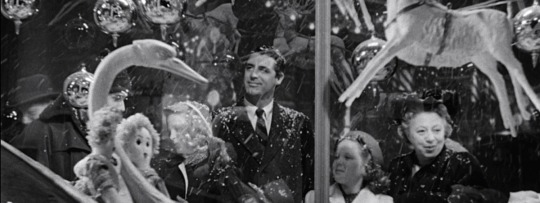
View On WordPress
1 note
·
View note
Text
Now watching:

1 note
·
View note
Photo
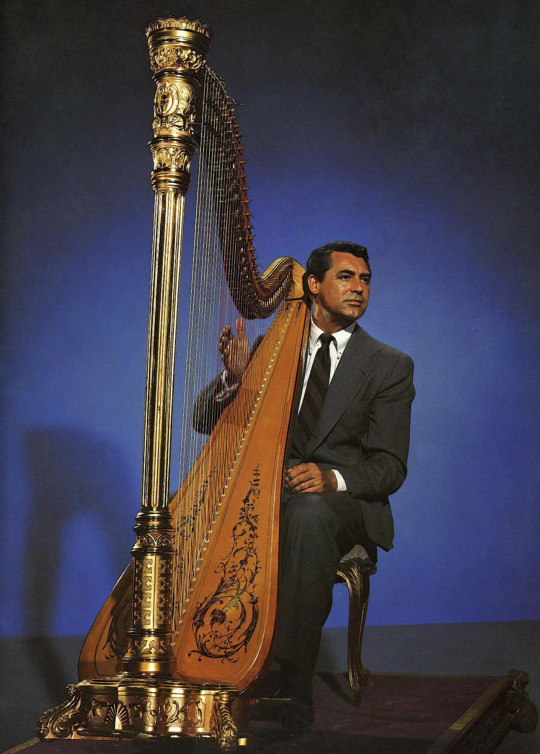
Wir konnten dann doch noch ein bisschen Weihnachtsfilme unterbringen. Wie wir ja immer geahnt haben, ist Cary Grant eigentlich ein Engel, der auf die Erde geschickt wurde, um die Menschen glücklich zu machen. Hier rettet er den um himmlischen Beistand betenden Bischof, der so davon in Anspruch genommen ist, eine prächtige Kathedrale zu bauen, daß er darob nicht nur seine eigentlichen Aufgaben, sondern auch seine reizende Gattin vernachlässigt. Und das zur Weihnachtszeit! Dank der himmlischen Charmeoffensive werden die Reichen spendabel, die Ehe gerettet und die hartgesottensten Atheisten kommen wieder in ihre hübsche, kleine Nicht-Kathedrale. Ich bin nicht sicher, ob ich das gutheißen kann, aber es ist herzig.
#The Bishop's Wife#Cary Grant#Loretta Young#David Niven#Gladys Cooper#Monty Woolley#Film gesehen#Henry Koster
0 notes
Text
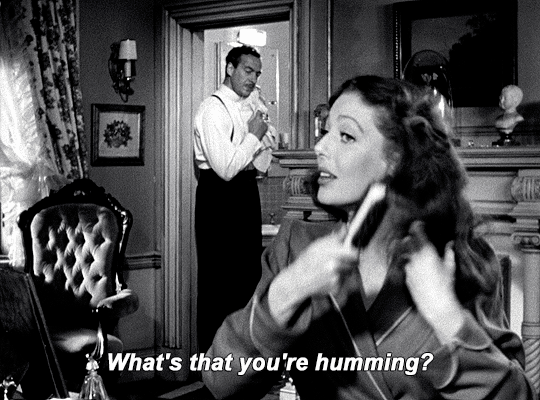
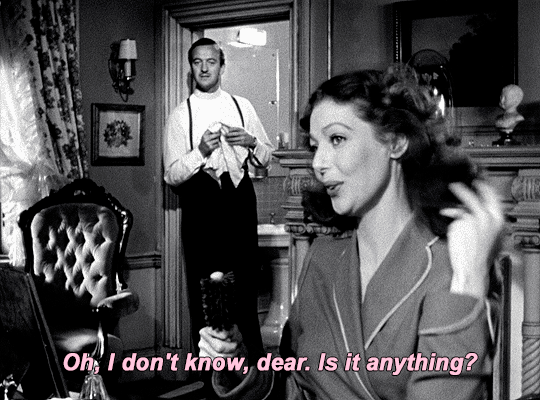

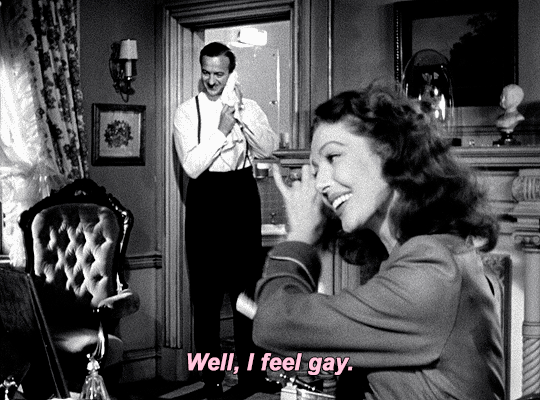
Loretta Young and David Niven in
THE BISHOP'S WIFE
1947 | Henry Koster
#the bishop's wife#oldhollywoodedit#filmedit#henricavyll#usermichi#userelissa#uservita#useralex#classicfilmblr#dailyflicks#~#tbw*#loretta young#david niven
987 notes
·
View notes
Text
Random yet ineffable fun fact of the day:
A scene from the film, The Bishop’s Wife, inspired a cut scene from Good Omens.
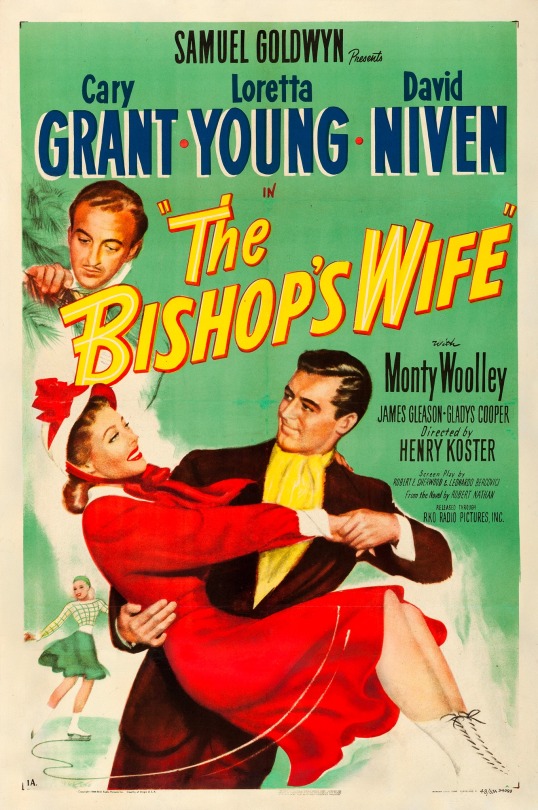
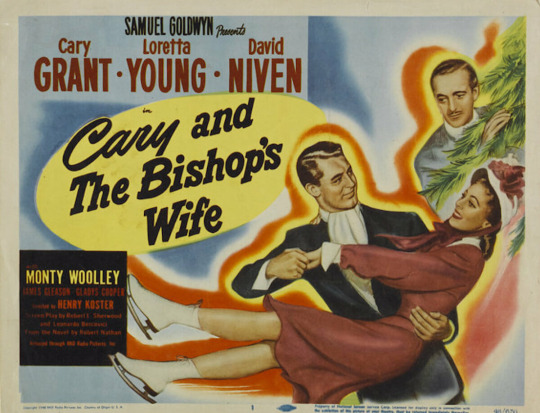
The basic premise of The Bishop's Wife (1947) is about an angel who helps a bishop with his problems.
The film was adapted by Leonardo Bercovici and Robert E. Sherwood from the 1928 novel of the same name by Robert Nathan.


Link to the post.
I compiled both scenes in this video so you can see the comparison. I do recommend watching the entire film though!
And some more interesting trivia:
Originally Cary Grant played the bishop and David Niven the angel. When original director William A. Seiter left the film, Henry Koster replaced him and viewed what had been shot so far. He realized that the two were in the wrong roles. It took some convincing because Grant wanted the title role of the Bishop. He eventually accepted the change and his role as the angel was one of the most widely praised of his career.
Does that remind you of anything related to the casting roles in Good Omens? 🤓 History repeats itself.
#good omens#crowley#aziraphale#ineffable husbands#neil gaiman#terry pratchett#good omens fun facts#easter eggs#good omens deleted scene#good omens edit#deleted scene#the bishops wife#cary grant#michael sheen
155 notes
·
View notes
Text
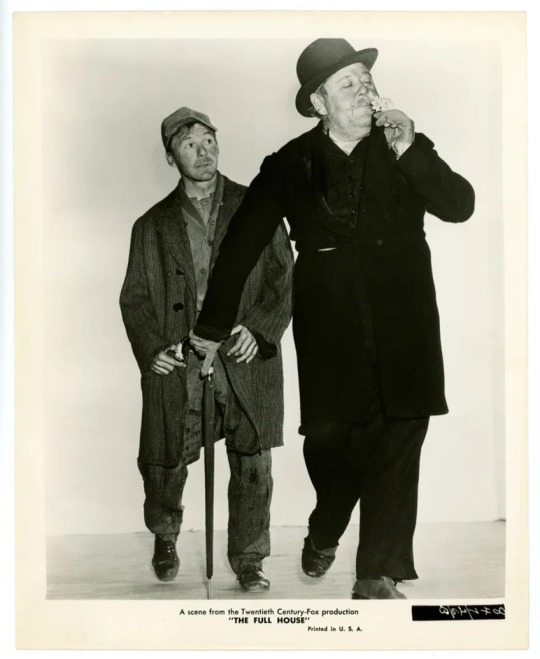
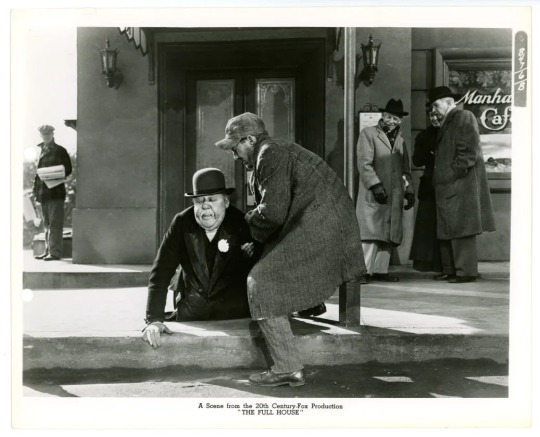
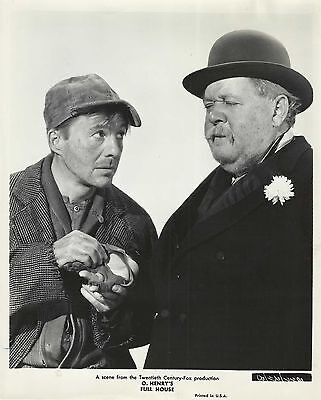
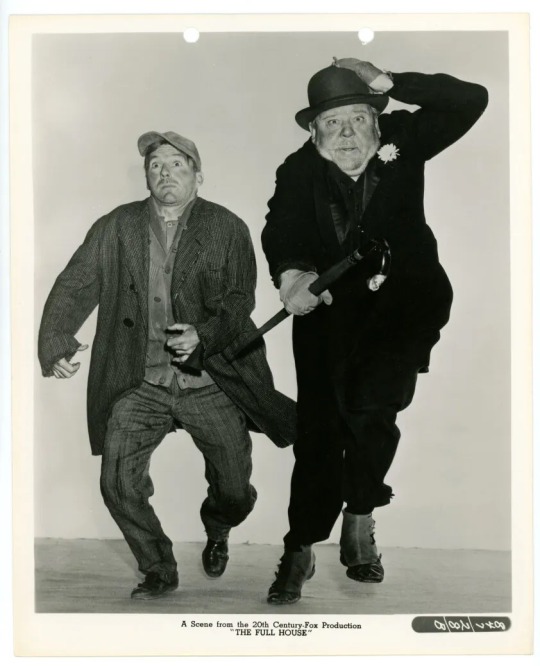
Charles Laughton and David Wayne in Henry Koster’s THE COP AND THE ANTHEM, one story in the 1952 anthology film, O. HENRY’S FULL HOUSE (1952)
12 notes
·
View notes
Text
John Metcalfe - Tree - a modern classical suite with both chamber and orchestral arrangements.
Tree is eight immersive compositions that take the listener through twenty-four hours in the life of one of nature’s most majestic creations
The Durutti Column viola-playing master - a composer and arranger for the likes of U2, Coldplay, Peter Gabriel and Blur, as well as co-founder with Tony Wilson of the Factory Classical label – had been composing music spontaneously, instinctively, when the idea of Tree arrived. The album came from a desire in John Metcalfe to write at scale – perhaps a natural reaction for a composer writing out of the silences and solitude of our recent pandemic years.
“The pieces I was writing were big and trying to be bigger, so I knew they had to be to do with something – and then I thought about one of the most profound experiences of my life.” He is referring to seeing Tāne Mahuta as an adult, the largest known living kauri tree in the world. Set in an ancient subtropical rainforest on the North Island of Aoreatoa / New Zealand, John had spent his early childhood living in that part of the world after his British father had "escaped there as a ten-pound Pom".
Having emigrated to England as a child, he went back to New Zealand with his wife when he was 26. He explains, “…we thought we’d tick something off the tourist list, and I thought we're going to see trees, which is great – but we weren’t prepared for what happened.”. They both cried when they found Tãne Mahuta, and Metcalfe is still amazed at the reaction he had: “… as an atheist, it was the closest I’ve ever got to a spiritual moment… there was something extraordinary about the atmosphere in the forest and the size of this tree, and the sense that it had been there a long time. It was about the protection it gave, and the sense of connection we had with that protection.”
Written for live players and recorded in Abbey Road Studios to convey human connection at scale, Tree imagines what it would be like to be sat completely still under a tree that you love, being alive to the ever-shifting interplay of light, colour, weather and sound. Shimmering pulsating layered tracks take the listener on a voyage that takes in the dawn chorus, depicted by conversations between chirruping woodwind and staccato strings, through to the solemnity of dusk and into the playful night. The album at times summons up the folkloric power of ancient forests through an emotional crescendo in emotion and sound, before bringing us back to sunrise, and a reflection on the journey we’ve taken.
Tree isn’t just about Tãne Mahuta, explains Metcalfe: “It could be about any tree – they’re all very magical.” This record isn’t a political statement, but it's clear to him that as science progresses, and as climate breakdown progresses, people are trying to find deeper ways to understand and cherish nature. "It’s about the music that people are trying to create to connect with things that are huge and beautiful and inexplicable around them."
Tree is John's beautiful, emotional attempt. "My album's about describing our relationship with something as every-day and extraordinary as a tree, and how it can be an incredibly important part of who we are.”
All tracks written, produced and performed by John Metcalfe
Additional Strings on Tracks 1,3,5,6,8
Violins
Everton Nelson (leader), Natalia Bonner, Charlie Brown, Emil Chakalov, Alison Dods, Louisa Fuller, Richard George, Raja Halder, Marianne Haynes, Rick Koster, Oli Langford, Steve Morris, Charles Mutter, Tom Pigott-Smith, Cathy Thompson, Debbie Widdup
Violas,
Peter Lale, Reiad Chibah, Gillianne Haddow, Kate Musker, Andy Parker, Rachel Robson
Celli
Richard Harwood, Adrian Bradbury, Ian Burdge, David Daniels, James Douglas, Julia Graham, Sophie Harris, Tony Woollard,
Double Basses
Stacey Watton, Roger Linley, Richard Pryce, Lucy Shaw
Woodwind on Tracks 3,4,5,6,7,8
Oboe Alun Derbyshire
Bassoon Sarah Burnet
Strings fixed by Jenny Goshawk for Isobel Griffiths Ltd.
Cover Design; Marc Bessant
6 notes
·
View notes
Text
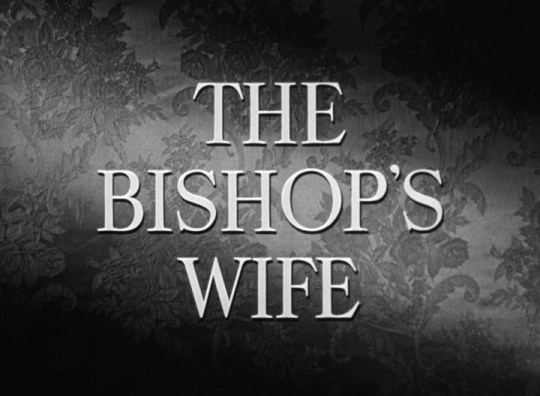
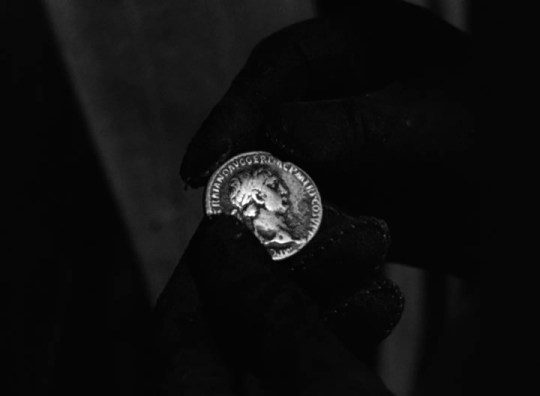
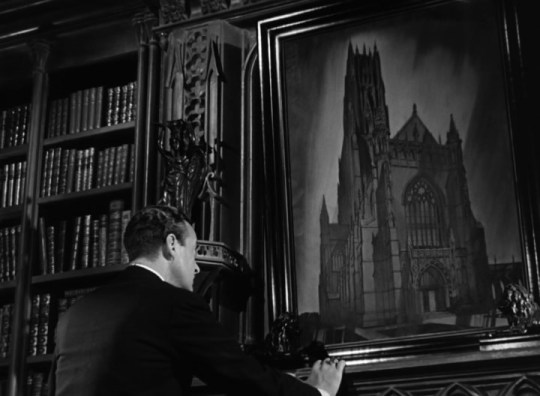
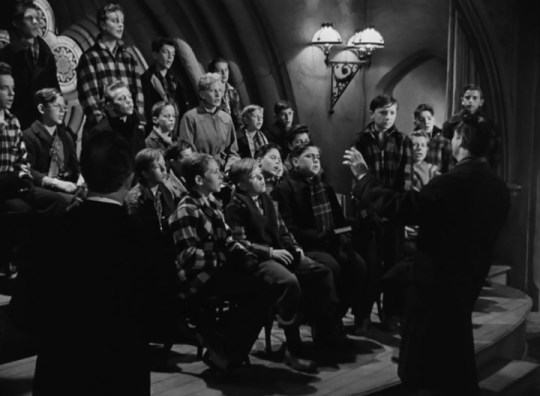
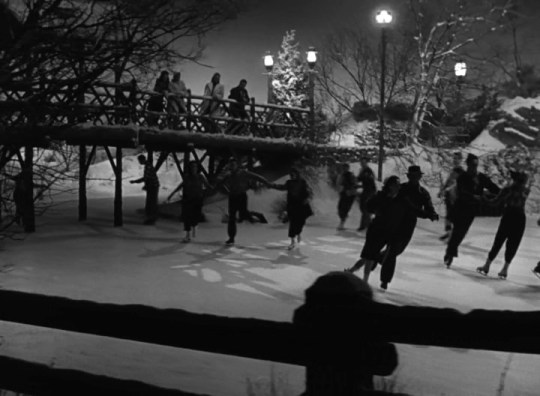
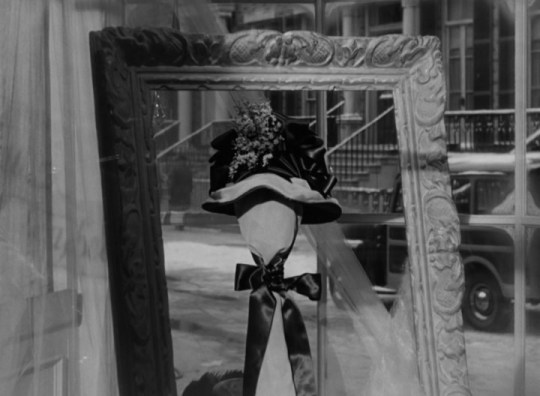
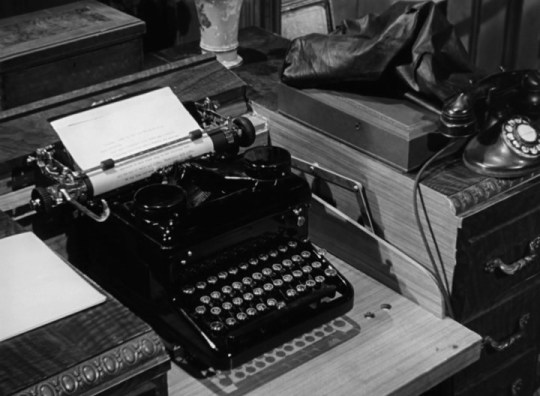
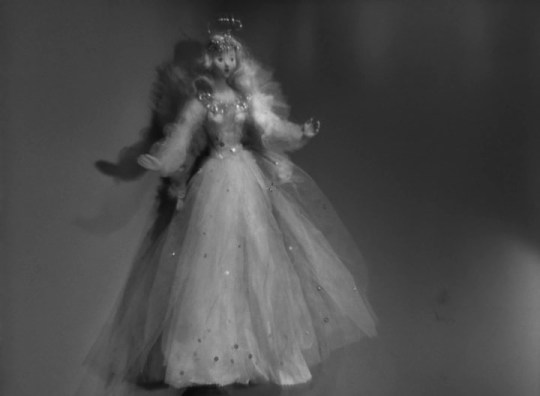
3 notes
·
View notes
Note
Il film più bello che tu abbia mai visto e perché. Grazie.
Buona domenica.
Questa è sempre una domanda complessa, per me; ogni film mi ha colpito in un modo diverso e mi risulta molto difficile prediligerne uno rispetto agli altri... ma succede anche con i dischi, con i videogames, con i libri, con le opere d'arte e via dicendo.
Ciò premesso, in questa luminosa mattina di maggio scelgo ...
UN FILM PER OGNI ARBITRARIA CATEGORIA DELLA MIA TESTA!
Categoria "Film di Quentin Tarantino"
A mani bassissime, "Bastardi Senza Gloria". Visto al cinema con un carissimo amico, ricordo ancora le nostre facce stupefatte dalla maestria vista a schermo, specialmente nella primissima parte introduttiva, e credo sia il film che più di tutti in assoluto dimostri che Tarantino sia molto di più di un simpatico cazzone con un gran talento e il vizio delle citazioni facili.
Runner-up: "Kill Bill" ma se fai un film in due parti è un po' barare, per me. Comunque notevole.
Categoria "Film d'azione degli anni '80-'90"
Qui mi trovo quasi in un imbarazzo serio quanto come con la prima domanda. Però non sarà domenica mattina per sempre (ah-ah, citazione in incognito) e quindi scelgo "Grosso Guaio a Chinatown", troppo spesso dimenticato dalle programmazioni regolari pur avendo due frecce incredibili al proprio arco, vale a dire Carpenter alla regia e Kurt Russell come protagonista.
Runner-up: "Predator".
Categoria "Fantasy & Derivati"
Quando hai visto la trilogia de "Il Signore Degli Anelli" al cinema, c'è poco da fare o da discutere. Oggi magari sembra poca roba, all'epoca (e non stiamo parlando degli anni '50, ma degli scarsi primi del secolo) lo si guardava sul grande schermo pensando: come cazzo hanno fatto?
Runner-up: "Conan" di Milius e "Ladyhawke".
Categoria "Film d'epoca"
Qui, per ragioni sentimentali, scelgo "L'anno scorso a Marienbad" di Alain Resnais. Le ragioni sentimentali sono: mio padre. (Ci ho fatto un post, qualche anno fa. Non so se resista ancora da qualche parte.).
Runner-up: "Harvey", di Henry Koster, con James Stewart. Bellissimo.
Categoria "Commedie Italiane"
Uh, questa è durissima. Però quando hai sottomano una roba come "Non ci resta che piangere", scritto, diretto e interpretato da Benigni e Troisi in stato di grazia, è difficile fare meglio.
Runner-up: "Vieni avanti, cretino!" di Luciano Salce, con un Lino Banfi che si mangia a colazione qualsiasi Jim Carrey in una sequenza di gag e scenette una più nonsense dell'altra.
Categoria "Fantascienza e dintorni"
"Blade Runner" e "Alien". Si, tutti e due. No, non sono disposto a trattare.
Runner-up: "Star Trek II: L'Ira di Khan", perché cazzo se regge bene al passare del tempo. E no, non ci metto Star Wars nonostante l'affetto che provo per il franchise.
Categoria "Film tratti da libri"
In genere si dice "è meglio il libro"... ma qui almeno va detto che merita tantissimo (anche per la sua genesi, consiglio di recuperare diversi articoli a proposito del rapporto tra regista e scrittori) "Stalker", di Andrej Tarkovskij, tratto da "Picnic sul ciglio della strada" di Arkadij e Boris Strugackij.
Runner-up: "Arancia Meccanica" perché puoi dare qualsiasi cosa a Kubrick e ne trarrà fuori il capolavoro che non sapevi di avere in mano.
Categoria "Commedie Americane"
Qui sicuramente si vede quanto io sia old-school, dato che tutti i film "commedia" sull'onda dei vari something-movie (scary movie, epic movie etc.) mi fanno abbastanza pena.
E quindi non posso che votare per "Una pallottola spuntata", diretto da David Zucker e con quel figo di Leslie Nielsen (e relativi seguiti, ma qui il primo è imbattibile).
Runner-up: "L'aereo più pazzo del mondo", perché "lo so lo so lo so!" "lo sa, lo sa, lo sa!" "lo faaaaaaaa"
Basta, mi fermo qui o vado avanti tutta la mattina. Grazie per l'ask!
2 notes
·
View notes
Text
son 3 yıldır falan yapıyordum, biraz geç kaldım ama 2023'te ilk kez izleyip en beğendiğim 10 film listem:
Fingernails (Christos Nikou, 2023)
Marcel the Shell with Shoes On (Dean Fleischer Camp, 2021)
Possibly in Michigan (Cecelia Condit, 1983)
The Adults (Dustin Guy Defa, 2023)
About Fate (Marius Weisberg, 2022)
Ring (Hideo Nakata, 1998)
Never Let Me Go (Mark Romanek, 2010)
The Banshees of Inisherin (Martin McDonagh, 2022)
The Rocky Horror Picture Show (Jim Sharman, 1975)
Ticket to Paradise (Ol Parker, 2022)
honorable mentions: harvey (herny koster, 1950); playtime (jacques tati, 1967); they came together (david wain, 2014)
seneye daha çok romcom ile görüşmek üzere..
2 notes
·
View notes
Text
hollywood's happiest couple
the films of billy wilder (writer&director) and charles brackett (writer&producer)

Bluebeard’s Eighth Wife (1938).
Director: Ernst Lubitsch.
Cast: Claudette Colbert. Gary Cooper. Edward Everett Horton. David Niven.
Screenplay: Charles Brackett and Billy Wilder. From the play by Alfred Savoir; English-language adaptation by Charlton Andrews.
That Certain Age (1938).
Director: Edward Ludwig.
Cast: Deanna Durbin. Melvyn Douglas. Jackie Cooper. Nancy Carroll. Irene Rich.
Screenplay: Bruce Manning. From an original story by F. Hugh Herbert. Charles Brackett and Billy Wilder received no screen credit for their work on That Certain Age.
Ninotchka (1939).
Director: Ernst Lubitsch.
Cast: Greta Garbo. Melvyn Douglas. Ina Claire. Bela Lugosi.
Screenplay: Charles Brackett, Billy Wilder, and Walter Reisch. From an original story by Melchior Lengyel.
Midnight (1939).
Director: Mitchell Leisen.
Cast: Claudette Colbert. Don Ameche. John Barrymore. Mary Astor.
Screenplay: Charles Brackett and Billy Wilder. From a story by Edwin Justus Mayer and Franz Schulz.
What a Life (1939).
Director: Theodore Reed.
Cast: Jackie Cooper. Betty Field. John Howard. Janice Logan.
Screenplay: Charles Brackett and Billy Wilder. From the play by Clifford Goldsmith.
Arise, My Love (1940).
Director: Mitchell Leisen.
Cast: Claudette Colbert. Ray Milland. Dennis O’Keefe. Walter Abel.
Screenplay: Charles Brackett and Billy Wilder. Adaptation by Jacques Théry, itself from an original story by Hans Székely and Benjamin Glazer.
French Without Tears (1940).
Director: Anthony Asquith.
Cast: Ray Milland. Ellen Drew. Janine Darcey. David Tree. Roland Culver.
Screenplay: Ian Dalrymple, Terence Rattigan, and Anatole de Grunwald. Brackett and Wilder worked on the story treatment.
Ball of Fire (1941).
Director: Howard Hawks.
Cast: Gary Cooper. Barbara Stanwyck. Oskar Homolka. Henry Travers. S.Z. Sakall.
Screenplay: Charles Brackett and Billy Wilder. From an original story by Wilder and Thomas Monroe.
Hold Back the Dawn (1941).
Director: Mitchell Leisen.
Cast: Charles Boyer. Olivia de Havilland. Paulette Goddard.
Screenplay: Charles Brackett and Billy Wilder. From Ketti Frings’ story “Memo to a Movie Producer.”
The Major and the Minor (1942).
Director: Billy Wilder.
Cast: Ginger Rogers. Ray Milland. Rita Johnson. Robert Benchley. Diana Lynn.
Screenplay: Charles Brackett and Billy Wilder. From the play by Edward Childs Carpenter, itself based on a story by Fanny Kilbourne.
Five Graves to Cairo (1943).
Director: Billy Wilder.
Associate Prod.: Charles Brackett.
Cast: Franchot Tone. Anne Baxter. Akim Tamiroff. Erich von Stroheim. Peter van Eyck.
Screenplay: Charles Brackett and Billy Wilder. From the play by Lajos Biró.
The Lost Weekend (1945).
Director: Billy Wilder.
Prod.: Charles Brackett.
Cast: Ray Milland. Jane Wyman. Phillip Terry. Howard Da Silva. Doris Dowling. Frank Faylen.
Screenplay: Charles Brackett and Billy Wilder. From the novel by Charles R. Jackson.
The Bishop’s Wife (1947).
Director: Henry Koster.
Cast: Cary Grant. Loretta Young. David Niven. Gladys Cooper. Monty Woolley. James Gleason. Elsa Lanchester.
Screenplay: Robert E. Sherwood and Leonardo Bercovici. From the novel by Robert Nathan.
Charles Brackett and Billy Wilder received no screen credit for their work on The Bishop’s Wife.
A Foreign Affair (1948).
Director: Billy Wilder.
Prod.: Charles Brackett.
Cast: Jean Arthur. Marlene Dietrich. John Lund. Millard Mitchell.
Screenplay: Charles Brackett, Billy Wilder, and Richard L. Breen. Adaptation by Robert Harari. From an original story by David Shaw.
The Emperor Waltz (1948).
Director: Billy Wilder.
Prod.: Charles Brackett.
Cast: Bing Crosby. Joan Fontaine. Roland Culver.
Screenplay: Charles Brackett and Billy Wilder.
Sunset Blvd. (1950).
Director: Billy Wilder.
Prod.: Charles Brackett.
Cast: William Holden. Gloria Swanson. Erich von Stroheim. Nancy Olson. Fred Clark. Cameos: Hedda Hopper. Cecil B. DeMille. Anna Q. Nilsson. Buster Keaton. H.B. Warner.
Screenplay: Charles Brackett, Billy Wilder, and D.M. Marshman Jr.
1 note
·
View note